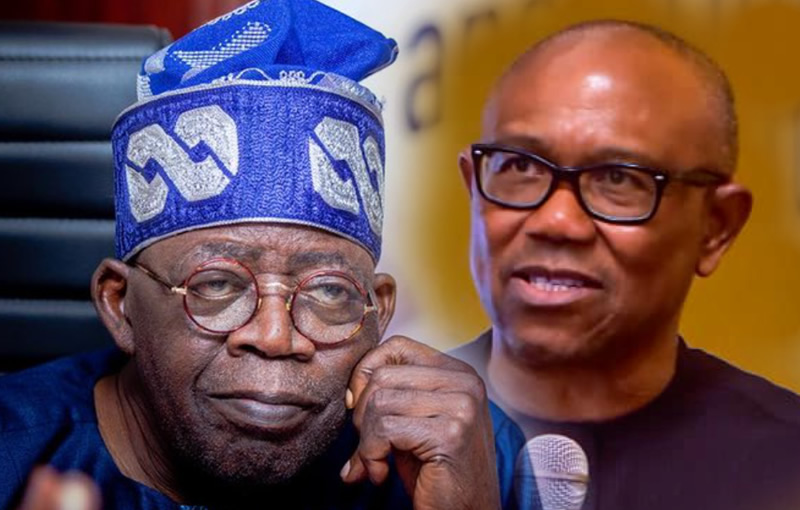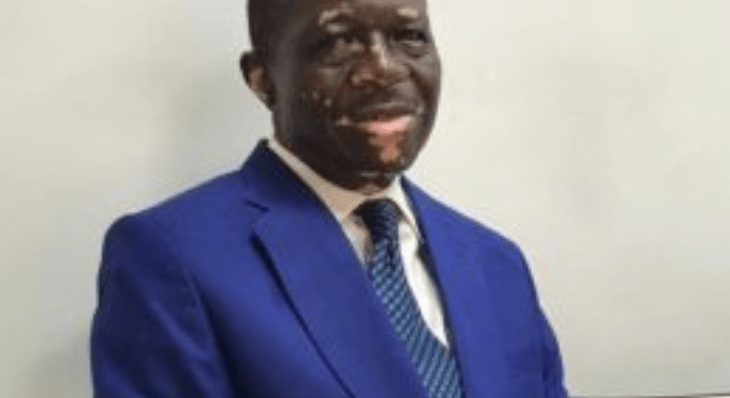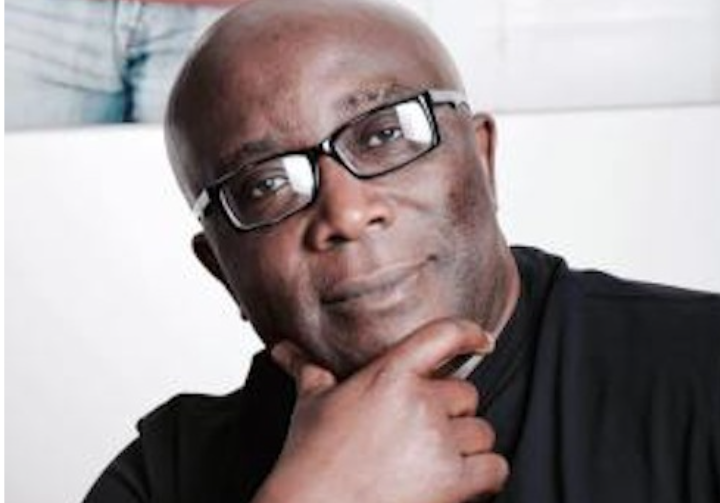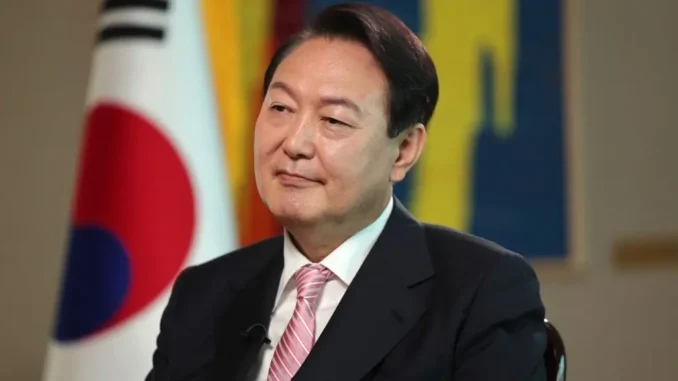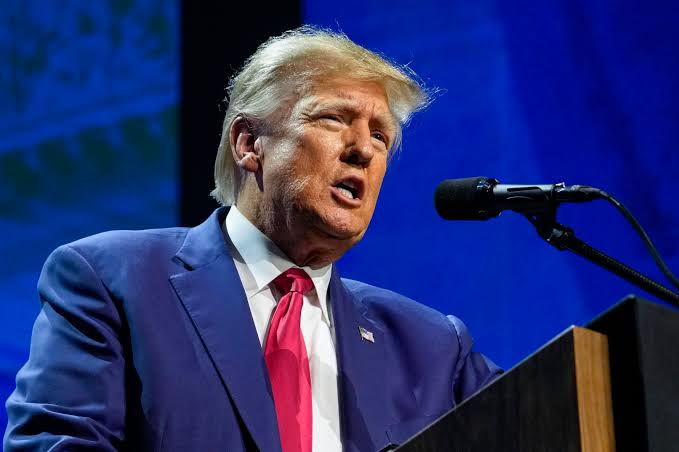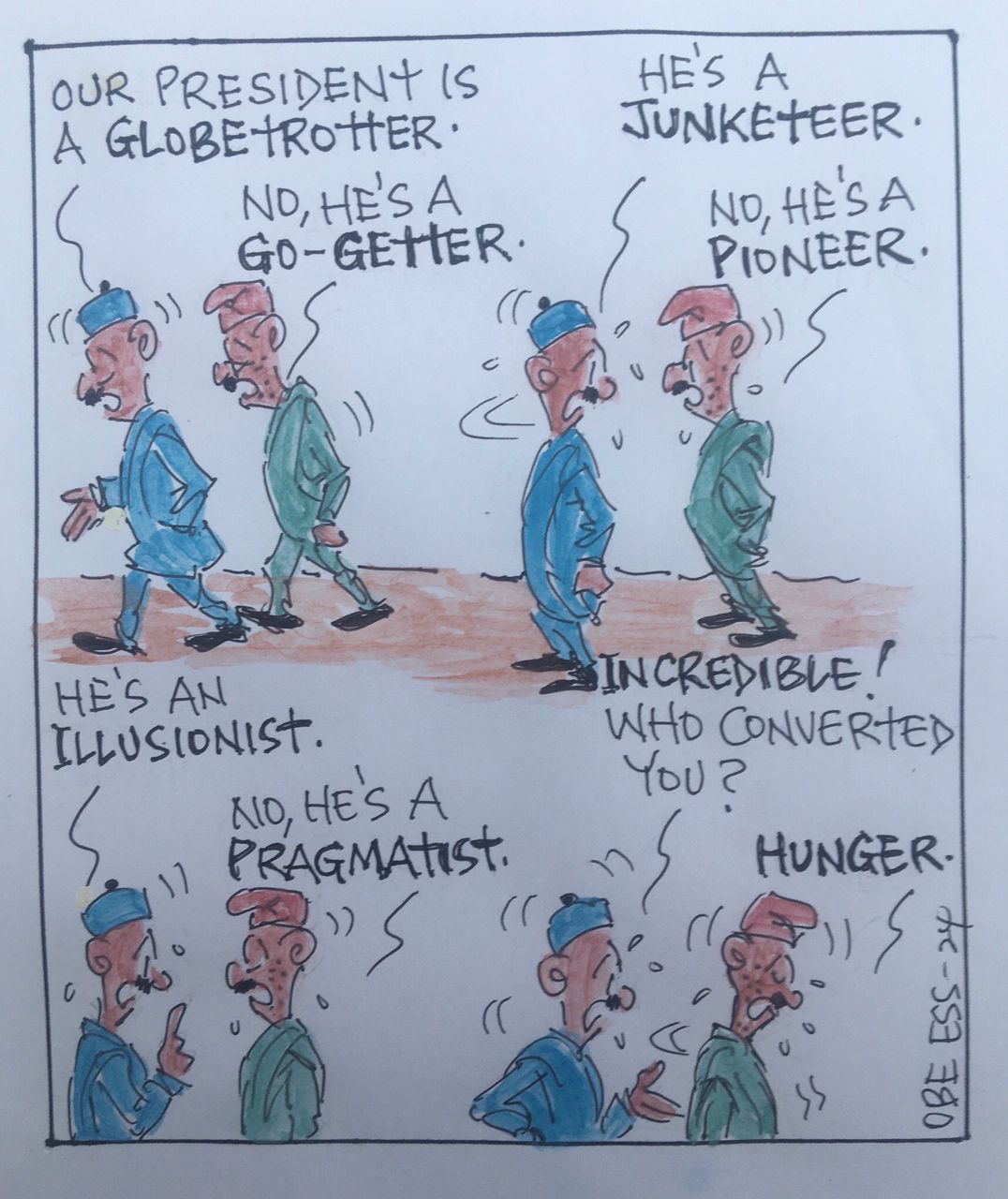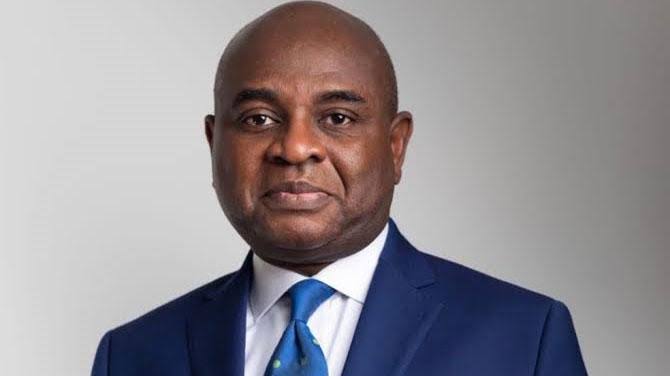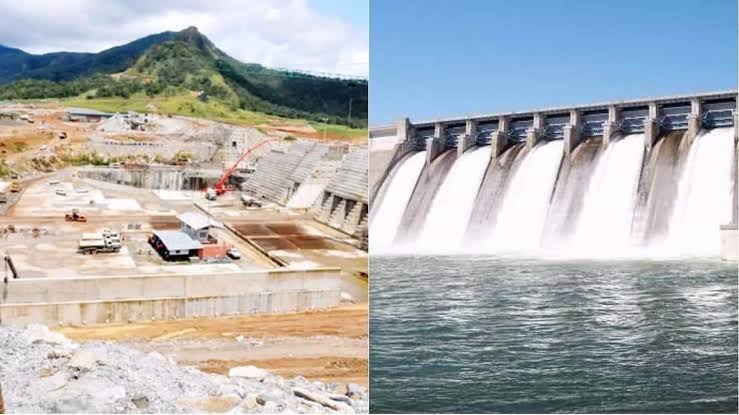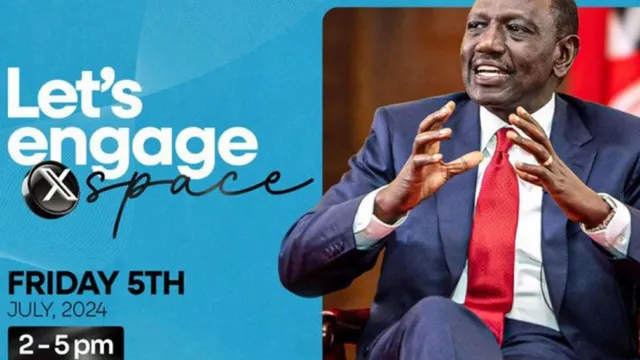First, I have it a duty to simplify the above captioned topic to enable readers’ understanding. This need to be done before embarking on the actual journey of producing the full body of this piece.
The President named here as un-listening is Bola Ahmed Tinubu. That he is not listening is not a false allegation against him. Nigerians would be willing to testify that their own elected President would never listen to them – he does it as it pleases him, and not as his people would have wanted.
And the unelected vice-president under reference here could not have been Kashim Shettima, whom Nigerians elected as the 15th Vice-Present of the Federal Republic, and sworn in with his principal, on May 29, 2023, to take charge of our country.
Instead, the unelected vice-president under discussion here is Nyesom Wike – immediate past governor of Rivers State, and now Minister of the Federal Capital Territory. He, Nyesom Wike, became so-known, through a perfidious means of political coup-de-tat, The route he chose tallied with some of the theories of President Bola Tinubu himself. Only two examples would be okay here.
While in Abeokuta, campaigning for the APC Primary’s ticket, Bola Tinubu made a very bold pronouncement of “Emi l’okan”, meaning “It Is My Turn”. He meant, by that statement, that it was his turn to become president of Nigeria. That was September 13, 2022. And he became.
Then leaving the Chatham House, in the United Kingdom, the presidential candidate of the APC, as he was then, told members of his Party, in a properly media-covered outing, that “Political power is not going to be serve in a restaurant. They don’t serve it a la carte. At all costs, fight for it, grab it and run with it.” That was December 8, 2022. And he fought for it, grabbed it, and ran away with what he grabbed to become the president.
One man that was not with him in Abeokuta; where he declared that it was his turn, and also not with him after the Chatham House show in London, where he taught his followers to steal – sorry, to grab and run away with what is grabbed, but got the meaning of the two messages clearly was the tten governor of Rivers State, Nyesom Wike.
The man, Wike, as of the time Bola Tinubu was establishing his school of “grabbing and running away with peoples’ properties”, has had a fixated eyes on the latter’s achievement as Lagos State governor. And he had studied two major things about the man – Bola Tinubu and had decided to follow his examples to the fullest.
Those two things that Wike chosen to pick from Tinubu were:
- How the man was able to conquer Lagos and turned the whole State to his personal property, or his Estate. I think, in my opinion, Wike admired the technique the Asiwaju used in having permanent grip on who the future governor of the State would be as long as he [Tinubu] remains alive.
- The second thing Wike inherited from understudying the Jagaban, again, in my opinion, was that Bola Tinubu, as a governor. never tolerated “second-in-command”, or what we call Deputy Governorship. Reality was that during his two tenures as governor, Tinubu changed his deputy governors the same way and manner one changes his/her underwear.
Though Wike liked this formula, he however adopted it with wisdom, deferring its adaptation till the future, at a time for presidency’s place of operation, because he – Wike, had a very romantic and robust relationship with his deputy throughout his two tenures as a governor.
Nysom Wike went to work immediately in acquiring all the political structures in Rivers State, as the 2023 General Election was approaching. He first of all selected all those that he wanted to run for all available political offices in Rivers State. These included all members of the State House of Assembly, the one person he has chosen to become his successor as a governor, the 3 Seats for the Senate and all members going to the House of Representative, at the National Assembly.
He took a further step by purchasing the needed political Party forms to enable contenders to contest for the elections, filled all the forms and filed same with INEC. He did and paid for everything. Wike confessed to all these publicly later.
Having secured the State under his political briefcase, he turned to make a deal with the man he believed may be winning the incoming election controversially – Bola Tinubu. He assured him of allocating all votes in River State to him – albeit, to secure his presidential victory. Don’t forget in hurry that Bola Tinubu was a candidate of the APC.
And at the same time, he made it known to Tinubu that the total votes in Rivers State that would be confirming his presidential ambition shall also be giving victory to all members of his own Political PARTY – the PDP, for the State House of Assembly, the Senate and the House of Representative. It was a master political Abracadabra that no Politician in Nigeria ever achieved except Nysom Wike. That victory itself tells the story of how that election was fully manipulated.
At this point of the greatest political rigging that ever occurred in Nigeria, Wike was signed in as the unelected vice-president of the Federal Republic.
I chose to take this lengthy but painful route of updating us about the “darkroom agenda thesis” that created the metaphor of Nysom Wike and Bola Tinubu.
Let us now fast forward to the Nigerian political crises that set sailing from the waters of Rivers State, which may push the whole country asunder, except God the Almighty intervenes.
I think the ship of disaster, that has sailed out of Port Harcourt and speedily heading towards Abuja, has the potential of consuming all of us – and this is for many reasons. A few amongst them would be the fact that the 3 arms of government in Nigeria, vis-à-vis the Executive, the Legislature and the Judiciary, have been synchronised and fully syndicated into one demonic Occult – albeit against the Nigerian People, by the current Government.
And the facilitators of this Demonic Agenda may not want to hear any other voice except the one of the commanding officers – the two masquerades. Because for now, thought of wiser men and women around the world community matters not to the duo.
What matters to them is the return of the economy and the political structures of Rivers State, and by extensions, the Oil economy of the Niger Delta geopolitical Zone, fully back to Wike in one hand, and the victory of the 2027 General Election is assured for President Bola Tinubu.
This is where the Roforofo fight [to the glorious memory of Fela Anikulapo] and the tragedy of victory for democracy might have been incubated!
Now, fact remains that we cannot close this essay on one episode, but before we go to the second episode, which shall be following this, most promptly, there is need to garnish the body of the topic – Goodluck Jonathan and others spoke to un-listening president and his unelected vice, by quoting what the latter said, in speaking to the ongoing battle between the Federal Government and against Rivers State.
Read very carefully, with full assimilation, of President Goodluck Jonathan verdict on the matter below. I shall be returning swiftly with the second and last comment on this trajectory.
The former Nigerian leader said, “We’re talking about building a society where no one is oppressed, as reflected in the top paragraph of our national anthem. As a former president, and also from the Niger Delta, when the issue of suspending the governor came out, I think people called on me, ‘President Jonathan you should say something.’
“What is happening in Nigeria today regarding the situation in river states is like an Indian proverb that said that if somebody is sleeping, really sleeping, you can easily wake up that person. But if that person is pretending to sleep, you find it difficult to wake up that person. The key actors in Nigeria, from executives to the legislature, and the judiciary, they know the correct thing to do, but they are refusing to do it. They are pretending to sleep.
“Waking such a person is extremely difficult, but the person knows the right thing. The clear abuse of offices, clear abuse of power, clear abuse of privileges, cutting across from the three arms of government, from the executive to the parliament to the judiciary. And I always plead with our people that whatever we do affects everybody.
“No businessman can bring his money to invest in a country where the judiciary is compromised, where a government functionary can dictate to judges what judgment they will give. No man brings his money to invest in that economy because we are taking a big risk. So whatever we do affects everybody.
“And if we want to build a nation where our children and our grandchildren, no matter how painful it is, we must strive to do what is right. It may cost us, but we must endeavour and pay the price to insist on doing what is right. Whether you are holding an executive office as a president, a minister, governor, or special advisor, executive, whether you are holding an office in the parliament, senate, or rep, whether you are a judicial officer in high courts or appellate courts, we must strive to do what is right.
“If we want to build a nation that our children will be proud of. As we engage in these discussions, let us remember that promoting social change is not a one-time event, but a continuous process. It requires a sustained commitment, collective action, and unwavering dedication to the values that promote good governance.”
